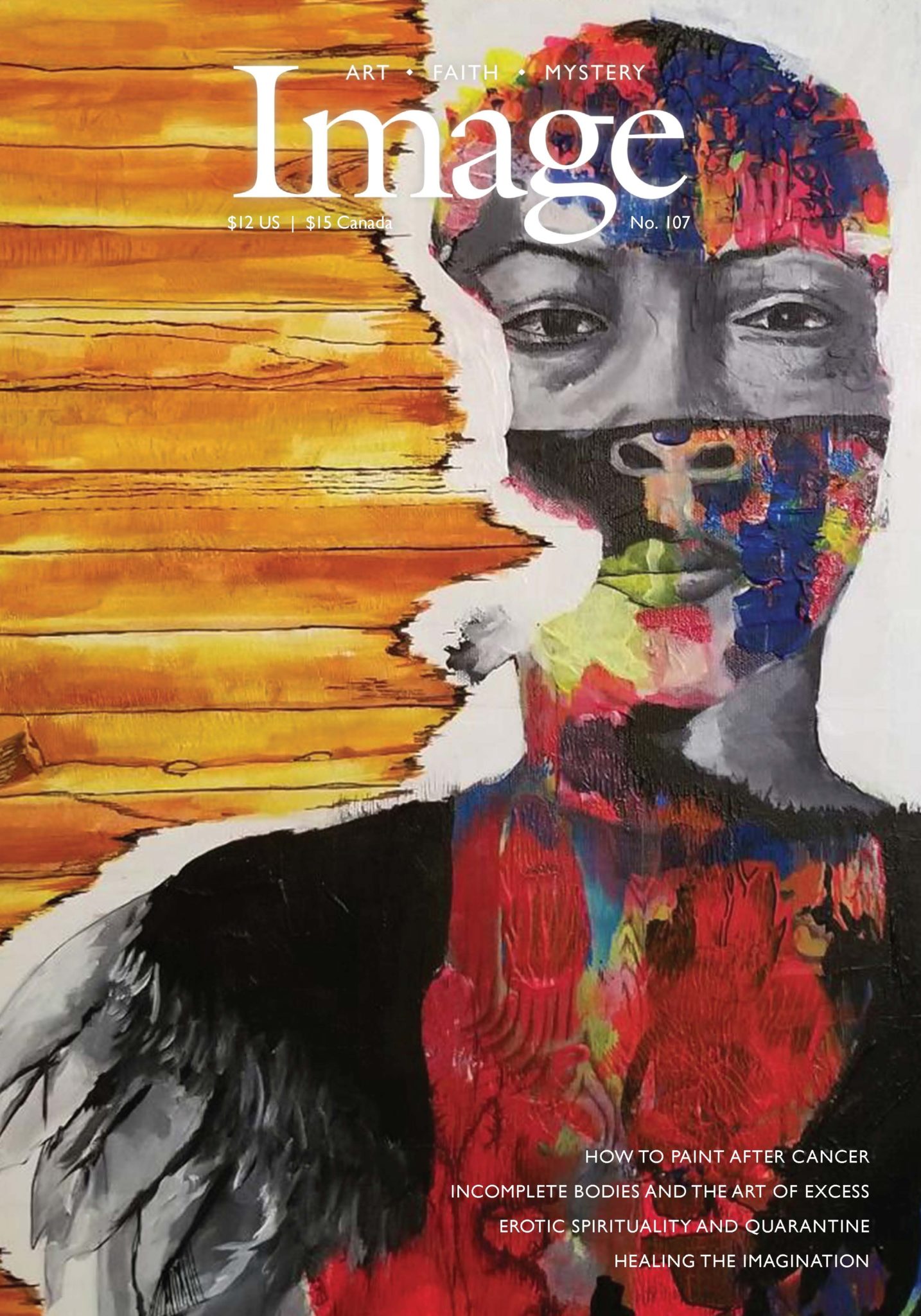$0.00Read more
Issue 107 | Winter 2020
Jessica Maria Hopkins’s post-cancer portraits. Katie Kresser on camp and an aesthetics of lack. Shane McCrae in Conversation with G.C. Waldrep. Joe Hoover on secular virtue, the Ignatian Exercises, and noticing God. B.D. McClay on longing and the problem with metaphors. Claire Latimer-Dennis on the creepy magnetism of charismatic prophecy. James K.A. Smith on James Baldwin. Curators Diana Nawi and Naima Keith on Prospect New Orleans. Painter Barbara Takenaga on collaborating with her materials. Daniel Drage on sculpture’s theology of negative space. Poems by Fady Joudah, Robert Fernandez, Kerri Webster, and more. Fiction by Pete Levine and Elyse Durham.




